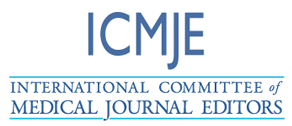Wernicke's Encephalopathy in Crohn's Disease: A Case Report Emphasizing Thiamine Deficiency Risk During Total Parenteral Nutrition
DOI:
https://doi.org/10.55677/IJCSMR/V4I11-04/2024Keywords:
Wernicke's Encephalopathy, Crohn's disease, Total Parenteral Nutrition, Korsakoff syndromeAbstract
Vitamin B1 (thiamine) is vital for carbohydrate metabolism and neurological functions. Thiamine deficiency, often associated with alcoholism, can arise due to absorption issues, increased metabolic demand, or inadequate intake. While rare in industrialized nations, it poses a risk in conditions like Crohn's disease (CD), particularly during prolonged total parenteral nutrition (TPN) without vitamin supplementation. Wernicke's Encephalopathy (WE), a complication characterized by altered mental status, ocular signs, and ataxia, can lead to Wernicke-Korsakoff syndrome (WKS).
A severely malnourished 50-year-old with CD developed WE after extended TPN without thiamine supplementation. Initial symptoms included weight loss, diarrhea, and anorexia. Despite CD treatment, TPN lacked thiamine supplementation. Neurological symptoms manifested after 15 days, with MRI confirming WE. Thiamine deficiency (40 nmol/L) was treated with 500 mg thiamine injections three times a day. Despite treatment, residual symptoms persisted, evolving into Korsakoff’s syndrome.
WE diagnosis is challenging due to a variable symptom triad. WKS, primarily linked to alcohol use, is underdiagnosed in nonalcoholic patients. Patients with malabsorption or malnutrition, including CD, are at risk, especially during TPN without multivitamin injections. Thiamine deficiency leads to neurotoxicity, prompting immediate thiamine administration. MRI aids diagnosis, but treatment should not be delayed. Recommended thiamine doses vary, emphasizing individualized care.
Awareness of WE in CD patients is crucial, emphasizing timely recognition, risk factor understanding, and optimized treatment strategies. Nonalcoholic WKS can be prevented through prophylactic parenteral thiamine treatment in at-risk patients. This case underscores the importance of vigilance, early intervention, and thiamine supplementation during TPN in CD, highlighting the need for tailored management approaches.
References
Ferrary O, Hercend C, Peoc’h K, Dauvergne A. La vitamine B1 : la première vitamine identifiée. Rev Francoph Lab. 1 juill 2019;2019(514):45‑54.
Folate I of M (US) SC on the SE of DRI and its P on, Vitamins OB, Choline A. Thiamin. In: Dietary Reference Intakes for Thiamin, Riboflavin, Niacin, Vitamin B6, Folate, Vitamin B12, Pantothenic Acid, Biotin, and Choline [Internet]. National Academies Press (US); 1998 [cité 23 oct 2023]. Disponible sur: https://www.ncbi.nlm.nih.gov/books/NBK114331/
Langlais PJ. Alcohol-Related Thiamine Deficiency. Alcohol Health Res World. 1995;19(2):113‑21.
Davis RE, Icke GC. Clinical chemistry of thiamin. Adv Clin Chem. 1983;23:93‑140.
Blennow G. Wernicke Encephalopathy Following Prolonged Artificial Nutrition. Arch Pediatr Adolesc Med. 1 déc 1975;129(12):1456.
Francini‐Pesenti F, Brocadello F, Famengo S, Nardi M, Caregaro L. Wernicke’s Encephalopathy During Parenteral Nutrition. J Parenter Enter Nutr. janv 2007;31(1):69‑71.
Filippi J, Al-Jaouni R, Wiroth JB, Hébuterne X, Schneider SM. Nutritional deficiencies in patients with Crohn’s disease in remission. Inflamm Bowel Dis. mars 2006;12(3):185‑91.
Thomson AD, Cook CCH, Guerrini I, Sheedy D, Harper C, Marshall EJ. Wernicke’s encephalopathy: ‘plus ca change, plus c’est la meme chose’. Alcohol Alcohol. 1 mars 2008;43(2):180‑6.
Delsa H, Benfaida A, Salimi Z, Rouibaa F, Aasfara J. Gayet-Wernicke Encephalopathy: An Unusual Complication of Vomiting. Cureus. 13(8):e17604.
Harper CG, Giles M, Finlay-Jones R. Clinical signs in the Wernicke-Korsakoff complex: a retrospective analysis of 131 cases diagnosed at necropsy. J Neurol Neurosurg Psychiatry. avr 1986;49(4):341‑5.
Torvik A. Wernicke’s encephalopathy--prevalence and clinical spectrum. Alcohol Alcohol Oxf Oxfs Suppl. 1991;1:381‑4.
Bouchal S, Bougtoub N, Alami B, Chtaou N, Maaroufi M, Belahsen F. L’encéphalopathie de Gayet Wernicke: aspects cliniques et anomalies radiologiques. Pan Afr Med J. 10 août 2020;36:259.
Sechi G, Serra A. Wernicke’s encephalopathy: new clinical settings and recent advances in diagnosis and management. Lancet Neurol. 1 mai 2007;6(5):442‑55.
Hahn JS, Berquist W, Alcorn DM, Chamberlain L, Bass D. Wernicke Encephalopathy and Beriberi During Total Parenteral Nutrition Attributable to Multivitamin Infusion Shortage. Pediatrics. 1 janv 1998;101(1):e10‑e10.
Baltrusch S. The Role of Neurotropic B Vitamins in Nerve Regeneration. BioMed Res Int. 13 juill 2021;2021:9968228.
Smith TJ, Johnson CR, Koshy R, Hess SY, Qureshi UA, Mynak ML, et al. Thiamine deficiency disorders: a clinical perspective. Ann N Y Acad Sci. août 2021;1498(1):9‑28.
Lindboe CF, Løberg EM. Wernicke’s encephalopathy in non-alcoholics: An autopsy study. J Neurol Sci. 1 avr 1989;90(2):125‑9.
Ota Y, Capizzano AA, Moritani T, Naganawa S, Kurokawa R, Srinivasan A. Comprehensive review of Wernicke encephalopathy: pathophysiology, clinical symptoms and imaging findings. Jpn J Radiol. 1 sept 2020;38(9):809‑20.
Boulanger AS, Paquette I, Létourneau G, Richard-Devantoy S. Thiamine et encéphalopathie de Gayet-Wernicke : quelles règles de prescription ? L’Encéphale. mai 2017;43(3):259‑67.
Galvin R, Bråthen G, Ivashynka A, Hillbom M, Tanasescu R, Leone MA, et al. EFNS guidelines for diagnosis, therapy and prevention of Wernicke encephalopathy. Eur J Neurol. déc 2010;17(12):1408‑18.
Oudman E, Wijnia JW, Oey MJ, van Dam M, Postma A. Wernicke-Korsakoff syndrome despite no alcohol abuse: A summary of systematic reports. J Neurol Sci. 15 juill 2021;426:117482.
Downloads
Published
Issue
Section
License
Copyright (c) 2024 International Journal of Clinical Science and Medical Research

This work is licensed under a Creative Commons Attribution 4.0 International License.












